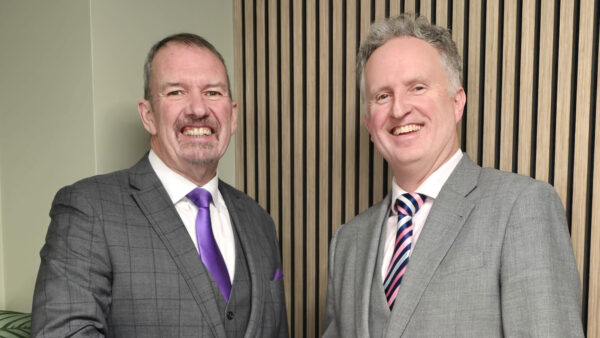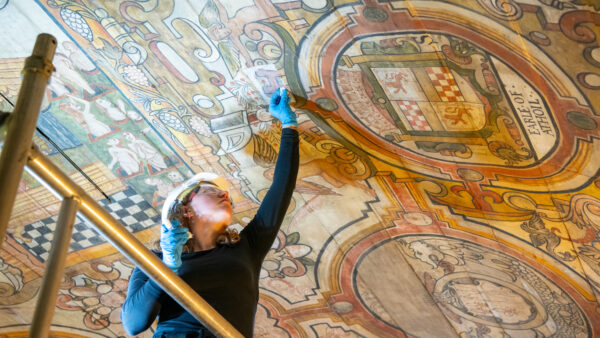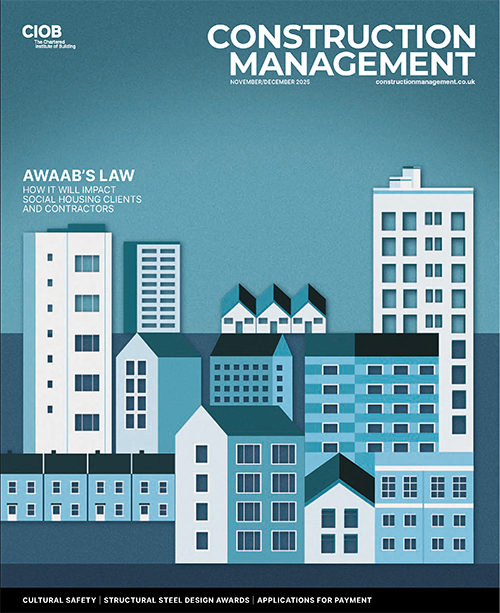Lee Rowland, a carpenter in the industry, spoke about his personal experiences and struggles with mental health and depression at the launch this week of Mates in Mind, a new industry initiative to tackle mental health.
Rowland, who turned a love of woodworking towards carpentry and then began working as a shuttering carpenter in the industry, describes himself as a very quiet person.
“I’ve always had confidence issues, which have been made worse by my dyslexia. I was, I am, a very timid person and often suffered anxiety growing up, not wanting to stand out or be a disappointment to anyone, including my family.”
Rowland, who lives with and is the primary carer for his disabled grandmother, said he spent a lot of his childhood trying to remain anonymous and not be noticed by anyone due to bullying and worry over other normal childhood issues.
Read related articles
Meet the industry’s stress busters
Corporate burnout – stopping the downward spiral
Top tips for tackling mental health problems in construction
“What started out as anxiety grows into depression, it starts really small and grows over time. I think at 14 is when I first developed depression, but things got a whole lot worse once I started working.”
Unfortunately, when he first started work in the construction industry he had a foreman who bullied and targeted him. First it was about his workmanship, but soon the attacks got deeply personal, targeting his appearance, intelligence and destroying his confidence.
He said: “I thought people would laugh if I complained or even talked to them about it, I didn’t want to bother my nan or mum. I felt there was no escape and couldn’t trust anyone. I started becoming very sharp with people, including my family and distancing myself emotionally from my nan.”
Hiding his feelings was draining physically and mentally, he started to think he might be better off dead. This led to him one day sitting on his bed with a handful of pills, thinking it would be best for him and everyone if he killed himself.
Thankfully, before he took this drastic step thoughts of his family and who would look after his grandmother stopped him. However, he wasn’t cured. He ended up comfort eating as a way of masking his feelings. He put on weight and this led to more isolation, loneliness and depression. Over the years this cycle continued and got worse and worse.
He acknowledges it also affected the quality of work he was doing. He was proud and happy being a carpenter, but depression dulled his pride and efforts to maintain high standards.
Another day feeling physically and emotionally drained and whilst working alone on a six-storey high building he considered suicide for a second time.
“I took off my harness and walked to the edge of the building, my feet right on the deck, hanging over.” But again rational thoughts brought him back to reality. “I asked myself, ‘Why do I feel like this?’” and this was his breakthrough and first step to recovery.
He visited his GP who referred him to a therapist and prescribed anti-depressants. This started him facing his fears and realising there are ways to cope. From here he spoke to his family about his struggles.
Eventually he plucked up the courage to speak to his site manager who offered him the support he needed to move forwards. After a year he was able to come off his medication and now, while he says he still has bad days, he maintains: “Depression will always be a part of my life, but it will not define me.”
Speaking to CM about his journey, Rowland said it would be an ongoing lifelong process for him, but initiatives like Mates in Mind are making things better.
“This is absolutely needed, you can have some people on site and jobs who you work with for two years, best mates, but you’d never talk to them about any issues you’re having, there’s been a stigma in the industry.
“I think partly it’s a British attitude also, people can be reserved or keep things inside, too polite, people need to be more open.
“People just have to talk more, chat, not be afraid. Attitudes need to change and I know it’s hard in such a male-dominated industry, it won’t be an overnight process and will take time to adapt but it has to be done.
“It might take years, look how long it took them to bring in goggles and safety gloves. But it will happen.”
Comments
Comments are closed.











I had the pleasure of meeting Lee yesterday at the HCLG conference, he is an inspiration his story had a huge impact on the whole audience,
I am really pleased I got to speak with Lee on a personal level, true gentleman